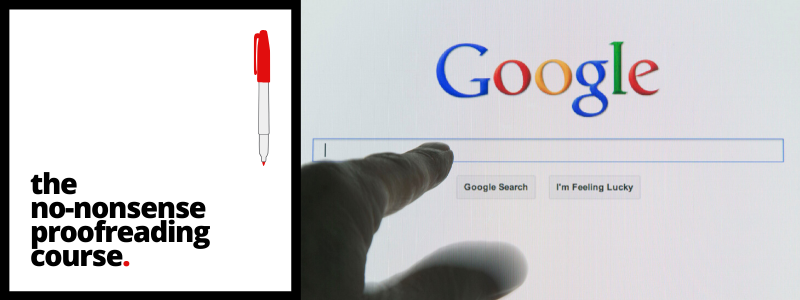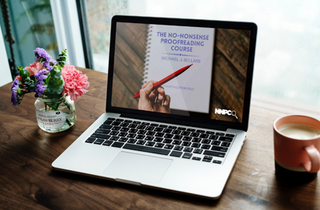A proofreader's guide to the Oxford commaWell, this is going to be a short blog post. What? A short blog post about the Oxford comma? Yes. The same Oxford comma that has had grammarians at each other’s throats for decades? Yes. The Oxford comma Horace Hart introduced during his time as printer and controller of Oxford University Press from 1893 to 1915? Yes, that Oxford comma. The same Oxford comma that was identified and named by Peter Sutcliff in his 1978 book about the Oxford University Press? Yes. The same Oxford comma that Sutcliff attributed to F. Howard Collins, who wrote about it in his seminal work ‘Author & Printer: A Guide for Authors, Editors, Printers, Correctors of the Press, Compositors, and Typists’? Yep. That one. A short blog post? About the Oxford comma? Yes, yes and thrice yes. Here we go. As we discussed in our earlier post 'A Proofreader's Guide to Grammar' (you can read it by clicking here), as a proofreader, your job is identify errors and not enter heated debates about ‘good, better, best’ issues of literacy. The use of an Oxford comma (sometimes called a Harvard comma or serial comma) is largely a matter of opinion and taste. Some people just like the Oxford comma. Just like some people love olives and some people think those pungent little blobs of stone-concealing disgustingness belong in the garbage. So, if the person who’s document your proofreading likes and uses the Oxford comma, that really is the end of the matter. If the style guide created or used by the publisher or company you’re proofreading for favours the Oxford comma then, again, that really is the end of the matter. The Oxford comma is in and the Oxford comma remains. Likewise, if an author, publisher company do not favour the Oxford comma or employ a style guide that doesn’t favour the Oxford comma (e.g. The Associated Press Stylebook), then the Oxford comma is a no-no. It doesn’t matter how much you love or loathe the Oxford comma. It’s not your call. Sorry. It’s a mean ole world. But there are exceptions. There are – as far as I know – no situations where an Oxford comma has caused a grammatical or semantical problem. Opposition to the Oxford comma is largely based upon its inelegance. It can be seen as visually cluttering a sentence. But – as the Dude once said – well, you know, that's just, like, your opinion, man. There are, however, occasions when the lack of an Oxford comma can be problematic. When an Oxford Comma can be Problematic EXAMPLE: Opponents of the Oxford comma might suggest restructuring the sentence to avoid the need for an Oxford comma, at all:
My wife and I were sat in the hospital waiting room for three hours with a drunk and a drug addict. But it’s really a matter of opinion. And that's it: a proofreader's guide to the Oxford comma. I told you it wouldn't take long.
1 Comment
Your comment will be posted after it is approved.
Leave a Reply. |
Details
Testimonials
“I am one of those many fools who paid a huge amount of money for a useless course. This book... has opened so many doors for me. I now look on Mike as my mentor as I embark on a career. Thank you Mike.” Emma Steel, Proofreader and International Structural Editor. “ I thoroughly enjoyed the course and am so glad that I decided to take it... the whole experience was invaluable. My proofreading service is now well established and your course played no small part in getting it off the ground.” Hache L. Jones, Proofreader. “I'd just like to thank you first of all for writing such a great, straight forward eBook, and then going above and beyond what I would even expect as a customer by providing us, completely free of charge, updated versions months later!” Rachel Gee, Trainee Proofreader. “What can I say? Worth every penny and then some! God Bless! This a fabulous course.” Teresa Richardson, Proofreader. “As someone who has effectively been proofreading for thirty years, I found Mike’s No-Nonsense Proofreading Course an invaluable introduction and a very useful practical guide to many aspects of this discipline. I can wholeheartedly recommend it as the ideal starting point, and much more besides.” Jeremy Meehan, Proofreader. Blog AuthorMy name's Mike Sellars and I'm an experienced proofreader and the author of The No-Nonsense Proofreading Course. Click here to find out more about me. The No-Nonsense Proofreading CourseA Fraction of the Cost of Other Proofreading Courses NOTE: Stock is currently limited to 10 per day, so we can continue to deliver exceptional after-sales service, answer queries and provide open-door support. Credit card and PayPal payments accepted. “As someone who has been proofreading for 30 years, I found Mike’s course an invaluable introduction and a very useful practical guide to many aspects of the discipline. I can wholeheartedly recommend it.” Jeremy Meehan, Proofreader. Still want to find out more? Click here. Proofreading Categories
All
Proofreading Archives
July 2024
|


 RSS Feed
RSS Feed
